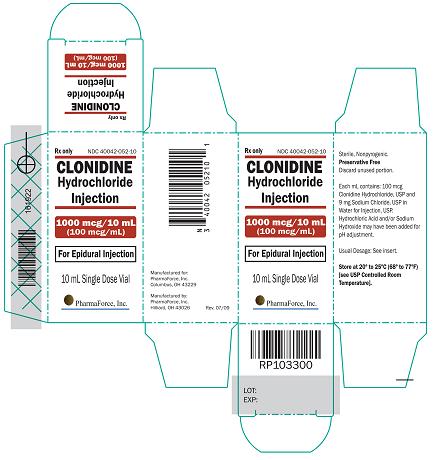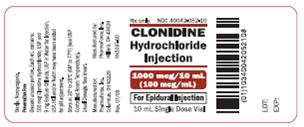Clonidine Hydrochloride Injection while Breastfeeding

What is Clonidine Hydrochloride Injection used for?
Clonidine Hydrochloride Injection while breastfeeding safe or not? Can there be any side effects for infant while using it during breastfeeding?

Nursing Mothers Concentrations of clonidine in human breast milk are approximately twice those found in maternal plasma. Caution should be exercised when clonidine is administered to a nursing woman. Because of the potential for severe adverse reactions in nursing infants, a decision should be made to either discontinue nursing or to discontinue clonidine.
Clonidine Hydrochloride Injection Breastfeeding Analsys
Clonidine hydrochloride while Breastfeeding
Low RiskCAS Number: 4205-90-7
It may inhibit prolactin release. Check-up blood pressure
Clonidine Hydrochloride Injection Breastfeeding Analsys - 2
Clonidine hydrochloride while Breastfeeding
CAS Number: 4205-90-7
Because of the high serum levels found in breastfed infants, possible infant side effects, and the possible negative effects on lactation, other antihypertensive agents are preferred, especially while nursing a newborn or preterm infant.[1] Clonidine used as a single postpartum dose as a neuraxial analgesia adjunct probably has not been studied, but it may reduce the need for other medications or their dosages, and appears unlikely to affect breastfeeding.[2]

I am nursing mother and I have already used Clonidine Hydrochloride Injection, what should I do?
Clonidine Hydrochloride Injection is in the category of low risk, if you have already used it then its not a big deal if health and behavior of baby is good. However your health care provider shall be aware of the fact that you have used Clonidine Hydrochloride Injection so you should inform him based on your convenience.
I am nursing mother and my doctor has suggested me to use Clonidine Hydrochloride Injection, is it safe?
Though Clonidine Hydrochloride Injection dose not comes in category of safe drugs rather it comes in category of low risk but if your doctor is aware that you are breastfeeding your baby and has still recommended it then its advantages must be outweighing the risks.
If I am using Clonidine Hydrochloride Injection, will my baby need extra monitoring?
Not much monitoring required while using Clonidine Hydrochloride Injection
Who can I talk to if I have questions about usage of Clonidine Hydrochloride Injection in breastfeeding?
US
National Womens Health and Breastfeeding Helpline: 800-994-9662 (TDD 888-220-5446) 9 a.m. and 6 p.m. ET, Monday through Friday
UK
National Breastfeeding Helpline: 0300-100-0212 9.30am to 9.30pm, daily
Association of Breastfeeding Mothers: 0300-330-5453
La Leche League: 0345-120-2918
The Breastfeeding Network supporter line in Bengali and Sylheti: 0300-456-2421
National Childbirth Trust (NCT): 0300-330-0700
Australia
National Breastfeeding Helpline: 1800-686-268 24 hours a day, 7 days a week
Canada
Telehealth Ontario for breastfeeding: 1-866-797-0000 24 hours a day, 7 days a week
